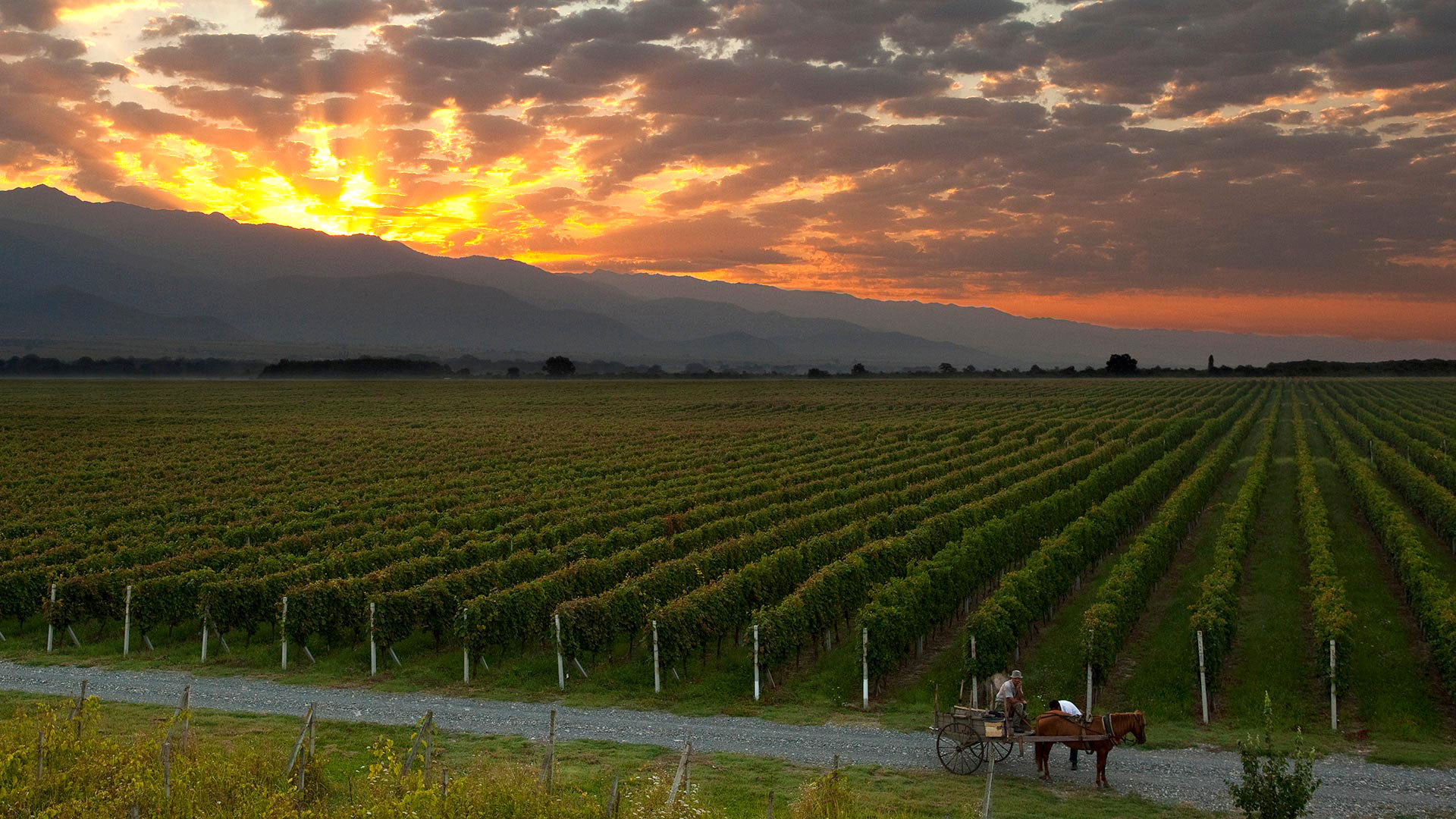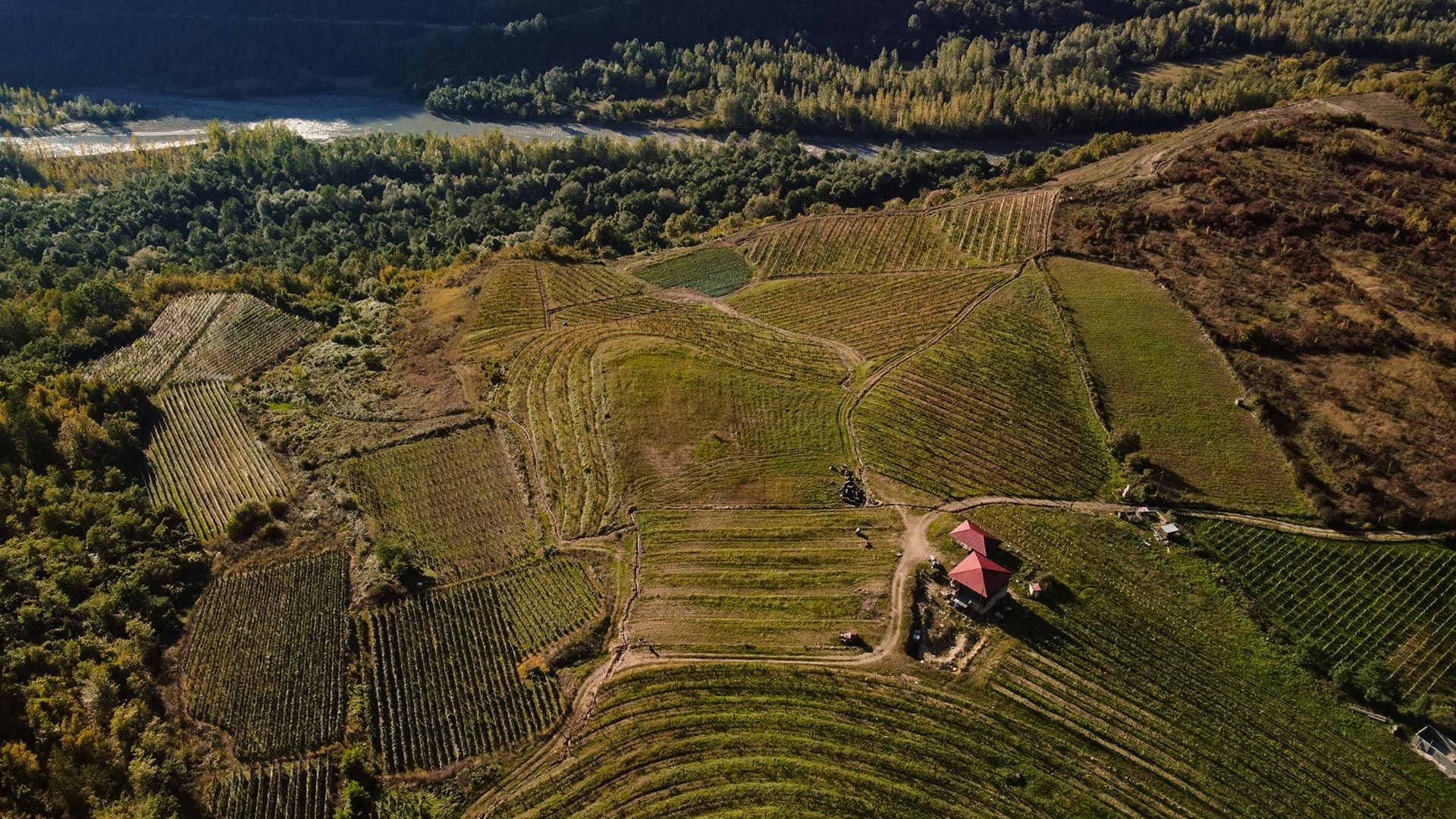
The story of Georgian wine
Marked by 8000 years of continuous vintage
Uncover the rich tapestry of Georgian winemaking, an 8000-year-old tradition that adds a touch of history to every bottle.

History rooted in the soil
Georgia proudly holds the title of the birthplace of wine.
A secret unearthed through a ground-breaking archaeological expedition in the southeast of the country, it was the discovery of fossilized grape seeds and remnants of Qvevri—the egg-shaped earthenware vessel buried underground to aid the fermentation process—which became the key to unraveling the 8000-year-old origins of viticulture.
The Georgian National Museum and the University of Toronto dated these artifacts to the Neolithic period—approximately 6000 BC—making them the earliest evidence of ancient winemaking.
For wine expert Andrew Jeffords, this revelation has not only placed Georgia at the epicenter of winemaking but also underscores an unparalleled historical continuity. To him:
“Georgia is the only country in the world where winemaking methods that were developed up to 8000 years ago have not only never been abandoned but remain in many ways best practice.”
“While ancient civilizations like Egypt and Greece developed wine cultures of their own, all owe a debt to Georgian viticulture,” says Jeffords.
Winemaking may have evolved over the years but the original techniques continue to shape the country’s 57 vineyards, demonstrating an unwavering appreciation of the ancient art of winemaking.

Clay, culture, and connection
Grounded by 8000-year-old foundations, contemporary Georgian winemaking is sustained by a triumvirate of elements: clay, culture, and connection.
The Georgian terrain, gifted with a temperate climate conducive to vine cultivation, has become home to over 525 indigenous grape varieties. The famed Alazani River Valley, framed against the backdrop of the Caucasus Mountains, is a winemaking haven, with its combination of well-drained, mineral-rich soils and high altitude contributing to the distinctive flavors and aromas typical of Georgian wines.
Beyond the soil, the enduring spirit of the Georgian people sustains historic winemaking rituals. Passed down from generation to generation, these traditions transcend practice; a cultural inheritance.
The most prevalent ritual of Georgian viticulture is the ancient art of Qvevri winemaking. The use of large, cylindrical clay vessels buried underground allows for natural temperature regulation during fermentation, imparting a unique texture and complexity to ensure that each sip encapsulates the essence of the Georgian terroir.
Geographical placement is the final thread that ensures Georgia’s viticultural relevance today. The country’s strategic location has facilitated trade connections with Europe, Asia, and the Middle East, enabling its wine to travel far and wide. And with Qveri now designated a UNESCO National Monument of Intangible Cultural Heritage, Georgia’s ancient winemaking practices continue to have global appeal.
Experiences from seed to bottle
For those looking to explore the birthplace of winemaking, Georgia Wine offers immersive experiences that bring to life every step of the process.
Vineyard tours provide a gateway for enthusiasts to engage with the most crucial step in winemaking. With opportunities to sample rare grape varieties, and a chance to witness Qvevri firsthand, a local vineyard tour takes you to the center of a craft perfected over centuries.
Many vineyards also offer cooking classes, inviting visitors to witness the importance of wine in Georgian gastronomy. Led by local chefs, these classes bring to life the journey from vine to table, with participants preparing classic wine-infused native dishes such as the aromatic chakapuli—a springtime stew made with lamb or veal—and kharcho—a rich beef and tomato soup.
Beyond the vineyard, the country’s cultural calendar bursts to life with vibrant wine festivals held throughout the year. The New Wine Festival in Tblisi celebrates the young wines that have been maturing over the winter months, while the Jazz and Wine Festival brings together two of Georgia’s most successful exports, pairing tastings from more than 15 wineries with world-class musical performances.
But it’s Kakheti’s Gurjaani Wine Festival, held in the country’s most famous winemaking region, that is the beating heart of Georgia’s festival season. With 80% of the country’s wine being made in Kakheti, the festival—which is part of Georgia Wine Week—has become a pilgrimage for wine lovers and producers alike, providing a unique insight from seed to bottle.

A living legacy
Georgia’s position at the epicentre of winemaking continues to hold cultural and viticultural significance.
Today, it’s a bridge that connects locals and tourists across generations, with the ancient ritual of Georgian winemaking offering a unique taste of history for all to enjoy.




